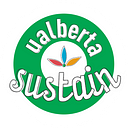Finding the roots of Albertan identity to envision new possible futures
“The identities of oil workers can be compatible with an environmentalist if we’re not constantly villainizing each other.”
By Jenna Bell
As a student studying Environmental Science, I often find it difficult to understand why people aren’t doing more to combat climate change. Within my academic bubble, I am surrounded by people who share the same opinions and the sincere values for the environment that I have. Because of this, I become easily frustrated with the lack of progress that our province is making towards a more sustainable future. I have a negative view of the oilsands and the fossil fuel industry.
But I have to remind myself that this province is made up of 4.4 million people with differing backgrounds, occupations, upbringings and values. Not everyone in Alberta shares my perspective. To fight climate change we must come together and find common ground, for environmental change requires radical social change as well.
Madeline Toubiana is a University of Alberta professor in Strategy, Entrepreneurship and Management and an affiliate of the Sustainability Council. Her research aims to answer the question: what stalls or fosters social change and social innovation? Toubiana examines this question in a variety of contexts including the Canadian prison system, social entrepreneurship, social media, the sex trade and in other complex organizations.
When did you first become interested in studying social change?
I was working in sales at a large luxury hotel and I had this feeling that what I was doing was not entirely ethical. The idea of “the more sales, the better,” it didn’t matter at what cost — it made me start thinking about what assumptions I had implicitly bought into when I took my business degree. I started to consider how we can become trained into a specific way of viewing the world, and how that could be what prevented different worlds from mixing.
And so I wanted to explore how we might get “unstuck” from a particular way of viewing the world. To do so, I began studying prisoners and their transition from prison back into society. I looked at what enabled some to be successful in shedding the institutional imprinting they carried, and what prevented others from doing so. It was my first deep dive into how we might get “unstuck”.
What are the complexities that an individual faces when trying to approach social change?
The biggest one is their own institutional embeddedness — the ways in which they’ve been socialized, educated, and trained to see the world and the extent to which that limits them from seeing the possibilities of change. Because sometimes the first part of systemic social change is changing your own worldview — and that’s actually a very challenging thing to do.
How can someone overcome these challenges?
The first step is generating your own reflexive awareness of where you are in the world. What are the institutions that you inhabit that have shaped your worldview? And then hopefully this opens you to see what else is out there and why it is different. You can then better recognize your place in the world — whether that’s a position of privilege, disadvantage or of stigma. Once we become more reflective we can begin to see what social change really means from our particular position. From here, of course, we have to get involved and begin to think about what is the social change we want to pursue.
So looking at Alberta, we’ve established a really deep rooted identity in fossil fuel production. Do you think this has made it harder for us to move in a sustainable direction?
Yes, absolutely. This is a really good example of what I’ve been talking about — the possibilities we can see for the future depend on our worldview. And if the world we see is shaped by a particular identity or understanding, then that limits the possibilities we can see for ourselves. Defining our identity as fossil fuel producers threatens the possibility for change.
We can disentangle our identity as Albertans by looking at the root of what unifies us. We can shift the focus from being fossil fuel providers to a broader understanding of what is at the core of this identity. Is it resourcefulness? A pioneering spirit? Being innovative? It is then less threatening to think about new possible futures and accepting the possibilities for change if we have a common identity to build on.
How can Albertans unite opposing views to better pursue environmental change?
Everything we do in life shapes who we are. Our undergraduate degree, being an engineer, being a business person — they all leave an imprint on our identity. All along that process, we’re learning ways to see the world.
So we don’t need to villainize people who don’t have our worldview, but we need to individually begin to expand our own. That is when we can envision possibilities to change in a non-threatening way. We have to find ways to expand our understanding of multiple worldviews and integrate them. It’s hard work, but it can be done, and when you start to understand either side, then you can hybridize! The identities of oil workers can be compatible with an environmentalist if we’re not constantly villainizing each other.
Madeline Toubiana is an affiliate of the Sustainability Council. She frequently teaches SMO 445 — Corporate Social Responsibility and Social Entrepreneurship, a course which is newly open to undergraduates in all faculties and part of the Certificate in Sustainability.
